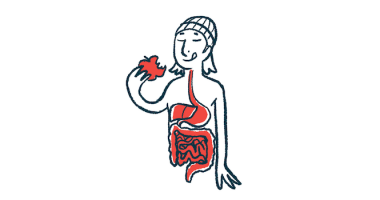Fecal microbiota transplant eases Parkinson’s symptoms in trial
Small trial found motor symptoms improved after procedure

Fecal microbiota transplant, a procedure that works to replace a person’s gut bacteria with gut bacteria from a healthy donor, may help ease motor symptoms of Parkinson’s disease, a small clinical trial found.
Transplant “offers the advantages of being considered safe based on experience in other indications, and being cost-effective,” which may make it easy to implement the procedure in clinical practice if its benefits for Parkinson’s are confirmed in future, larger studies, the researchers wrote.
The study, “Safety and efficacy of faecal microbiota transplantation in patients with mild to moderate Parkinson’s disease (GUT-PARFECT): a double-blind, placebo-controlled, randomised, phase 2 trial,” was published in eClinicalMedicine.
The human digestive system is home to billions of bacteria, which have profound effects on health that are only beginning to be understood. Studies have suggested that gut bacteria are imbalanced in Parkinson’s patients, and there’s building data that abnormalities in the gut can affect brain health and may contribute to the development and progression of Parkinson’s.
Given the increasing evidence that abnormal gut bacteria may contribute to Parkinson’s, some researchers have proposed that treatments to normalize gut microbiota may be beneficial for Parkinson’s patients. Scientists in Belgium conducted a clinical trial, GUT-PARFECT (NCT03808389), to test this idea.
Fecal microbiota transplant had ‘mild, but long-lasting’ benefit
“This study represents the first randomized, double-blind, placebo-controlled clinical trial demonstrating the improvement of motor symptoms in patients with mild to moderate [Parkinson’s] through FMT [fecal microbiota transplant],” the researchers wrote.
In the study, 46 people with mild to moderate Parkinson’s (Hoehn and Yahr stage 2) were randomly assigned to undergo fecal microbiota transplant using gut bacteria from a donor, or, in the case of controls, their own bacteria. Participants were assessed for as long as a year following the procedure, and all but three completed all study visits.
The main goal of the GUT-PARFECT trial was to test whether transplanting bacteria from a healthy donor could help reduce the severity of motor symptoms, as measured during off-medication periods by part three of the Movement Disorders Society-Unified Parkinson’s Disease Rating Scale (MDS-UPDRS).
In participants given transplants from healthy donors, motor symptom scores improved by a mean of 5.8 points after one year. That was significantly more than the 2.7-point improvement seen in the control group.
“Our findings suggested a single [fecal microbiota transplant] induced mild, but long-lasting, beneficial effects on motor symptoms in patients with early-stage [Parkinson’s],” the scientists wrote.
Constipation lessened as well
Patients given bacteria from healthy donors also tended to have less severe constipation after the fecal transplant, though they reported worse fatigue on average by the end of the study. Other assessments, including measures of nonmotor symptom severity, life quality, mental health and cognition, showed no difference between the two groups.
The fecal microbiota transplant itself was generally well tolerated. Some patients experienced digestive symptoms such as abdominal cramps and nausea shortly after the procedure, but there weren’t any severe treatment-related safety issues documented.
Overall, the findings support the idea that normalizing gut bacteria via fecal microbiota transplant from a healthy donor could be a viable way to treat Parkinson’s. The researchers stressed, however, that the study was small and further work is needed to confirm the findings.
“It is crucial to independently reproduce these results,” the researchers wrote. “Ideally, a multi-center study with a larger sample size and the same primary outcome, e.g. MDS-UPDRS motor score, should be initiated.” Larger studies should also assess this therapeutic approach in patients at various disease stages, they said. They also highlighted a need for more research into less invasive microbiome-altering therapies, which could include supplementing live organisms directly (probiotics).








